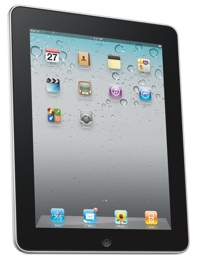Three-quarters of college freshmen surveyed said they would be willing to personally purchase an Apple iPad if at least half of their textbooks were available digitally, according to new research findings from Abilene Christian University’s 2010-2011 mobile-learning projects.
A majority of these students at the Abilene, Texas, school rated reading on the iPad as “more convenient” than reading from traditional paper textbooks, though they rated paper texts as “easier” when asked to compare the two. The announcement is the first in a series of research findings ACU will release from its 2010-11 empirical evaluations and digital text studies, conducted in ACU’s Mobile-Learning Fellows program and in other faculty exploration projects. The ACU Connected website (http://www.acu.edu/technology/mobilelearning/Research/index.html) has details of each study.
Over the past year, researchers at ACU have begun to investigate student perceptions of both the iPad and the digital content available on it. Short-term projects have allowed ACU students to evaluate potential iPad uses in a number of courses and in selected research settings. Additionally, students in three full-semester classes were provided with Apple tablets, and gained access to digital texts through a partnership between Inkling, McGraw-Hill, and ACU.
Students in a microeconomics course used iPads for two full semesters with a digital-only version of their course text. Some students reported frustration at losing personal annotations and highlighting when they updated the reading application. However, students and faculty alike reported increased participation, involvement and interest in the course, as well as increased contact between students and professors.
Students enjoyed their new ability to corroborate and collaborate on research activities at any time, from any location. They said the iPad and its application in the classroom modeled the use of mobile devices in the professional world, helping prepare them for their careers.
Students in a senior-level marketing course also used iPads for one semester with a digital-only version of their course text. Students rated the overall experience positively, with a majority claiming they could read and study as well or better with the iPad than with a traditional paper textbook. When comparing types of digital textbook formatting, these students expressed a strong preference for side-to-side page turning, which mirrors a paper textbook experience, over the up-down page scrolling used in some reading applications.
ACU has conducted yearly assessments of users’ experiences with mobile devices since 2008, when it began its mobile-learning program, Connected, which distributes iPhones and iPod touches to students and faculty. Below is a sample of findings from these assessments:
° Faculty report significant class-related use of mobile devices;
° Each year, an increasing number of faculty are engaging and experimenting with mobile learning;
° Mobility allows faculty to transform educational practices in and out of the classroom;
° Faculty members rate students as more engaged when they use mobile devices as part of their college experience;
° Student and faculty attitudes, impact and usage are more positive among iPhone users in comparison to iPod touch users;
° Faculty consistently rate the mobile-learning program a success;
° Students perceive positive academic impact of educational use of mobile devices.
“Three years of research has built a stronger case for mobility in education, and ACU has also demonstrated that students and faculty will adopt these technologies if proper infrastructures are provided,” says George Saltsman, executive director of ACU’s Adams Center for Teaching and Learning. “We are witnessing the first efforts at creating a sustainable infrastructure for digital learning content. Our faculty and students are exploring these new options and the outlook is highly positive.”
Dr. Robert McKelvain, ACU professor of psychology and researcher-in-residence at ACU’s Adams Center for teaching and learning, agreed with Saltsman, adding: “Digital textbooks are being brought to the marketplace by two highly competitive industries – publishing and computing. With hundreds of millions of dollars at stake, we can expect to hear lots of claims for digital publishing products. However, the important question is, ‘Do students learn more?’ As researchers and professors at ACU, we are working with students to find out what works for education.”

